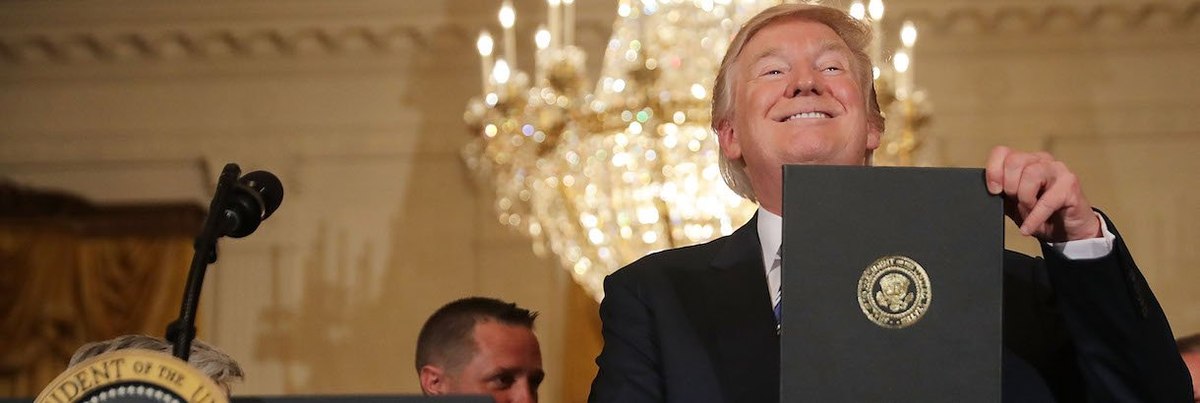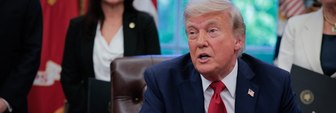Only 18% of people have heard a lot about withdrawal from Intermediate-Range Nuclear Forces treaty
Weekend news has focused on shootings, pipe bombs addressed to Democrats critical of (and criticized by) the President, and a caravan of Central American migrants hoping to be allowed into the US. So the President’s plan to withdraw the United States from the INF (Intermediate-Range Nuclear Forces) treaty, negotiated with Soviet leader Mikhail Gorbachev during the Administration of fellow Republican Ronald Reagan, did not get much attention. In the latest Economist/YouGov Poll, just 18% of the public said they had heard a lot about the President’s planned withdrawal.
In contrast, about half had heard “a lot” about the caravan and about Saturday’s synagogue shootings. Even more had heard a lot about the pipe bombs.
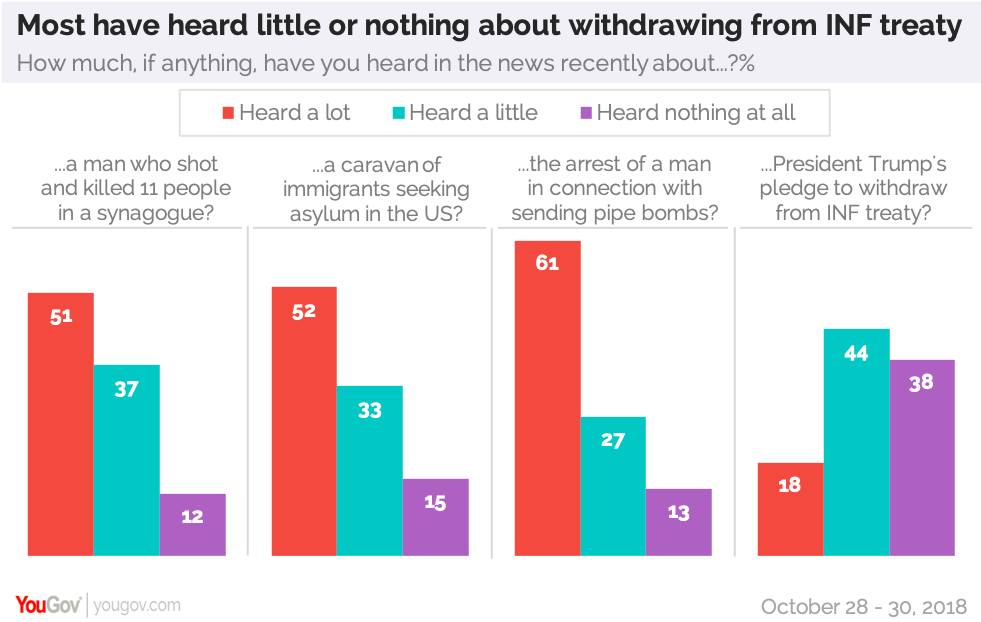
The President said the US withdrawal was necessary, as the Russians were violating the agreement. But Americans aren’t at all sure that withdrawal is a good idea. Although a majority of Republicans approve of the planned withdrawal, the rest of the public disagrees. Overall, Americans disapprove 37% to 23%. Independents and Democrats are more likely to disapprove than approve. Many, however, don’t have an opinion one way or the other.
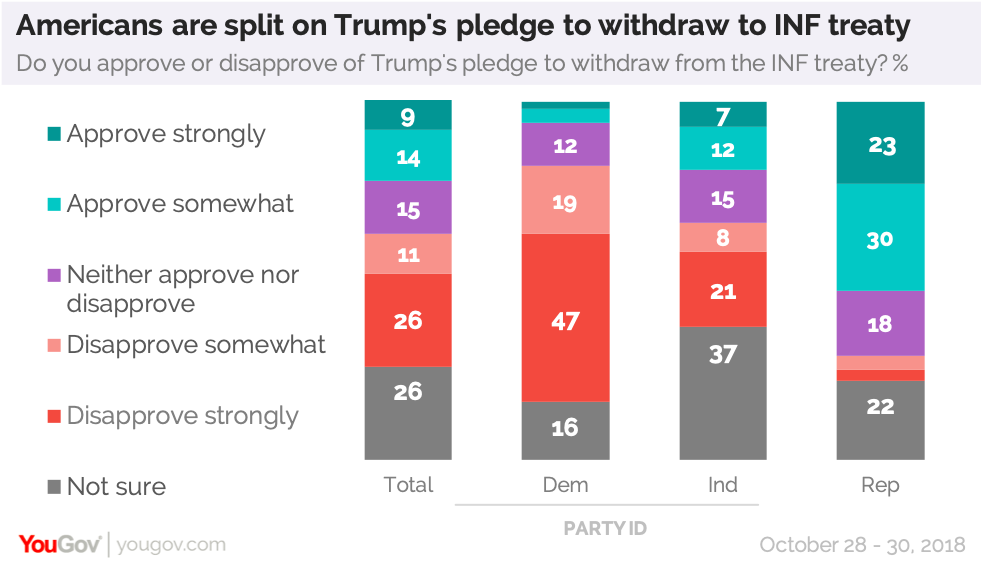
Republicans seem more willing in general to let presidents make up their own minds about whether or not to keep international agreements made by their predecessors. Two out of three Republicans say presidents should be able to choose which international agreements to keep and which to ignore. Only a third of the public overall agree with Republicans. Democrats and independents believe presidents need to follow their predecessors’ international agreements.
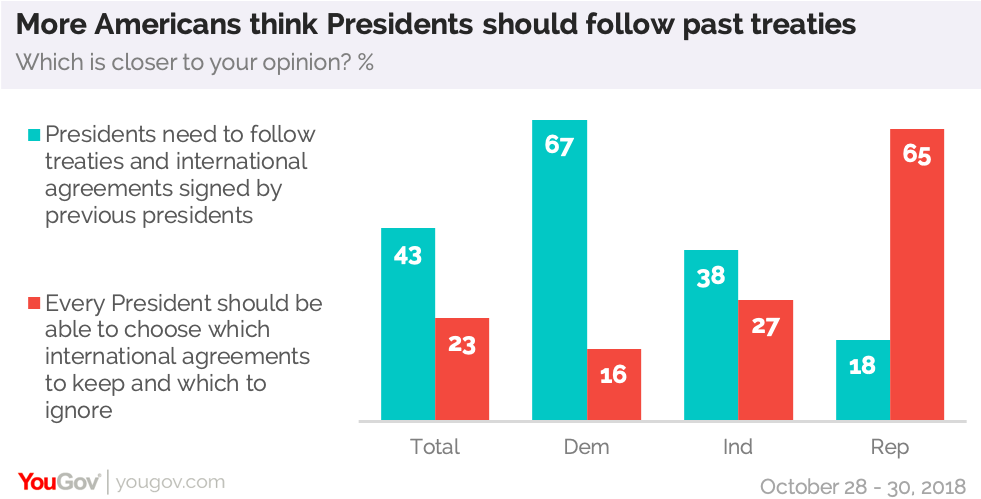
The INF treaty is with a country Americans distrust. Two in three regard Russia as unfriendly or an enemy, which may make withdrawal more palatable to some. However, those who see Russia as an enemy of the US are the most likely to disapprove of withdrawal from the agreement.
See full toplines and tables results
Image: Getty
